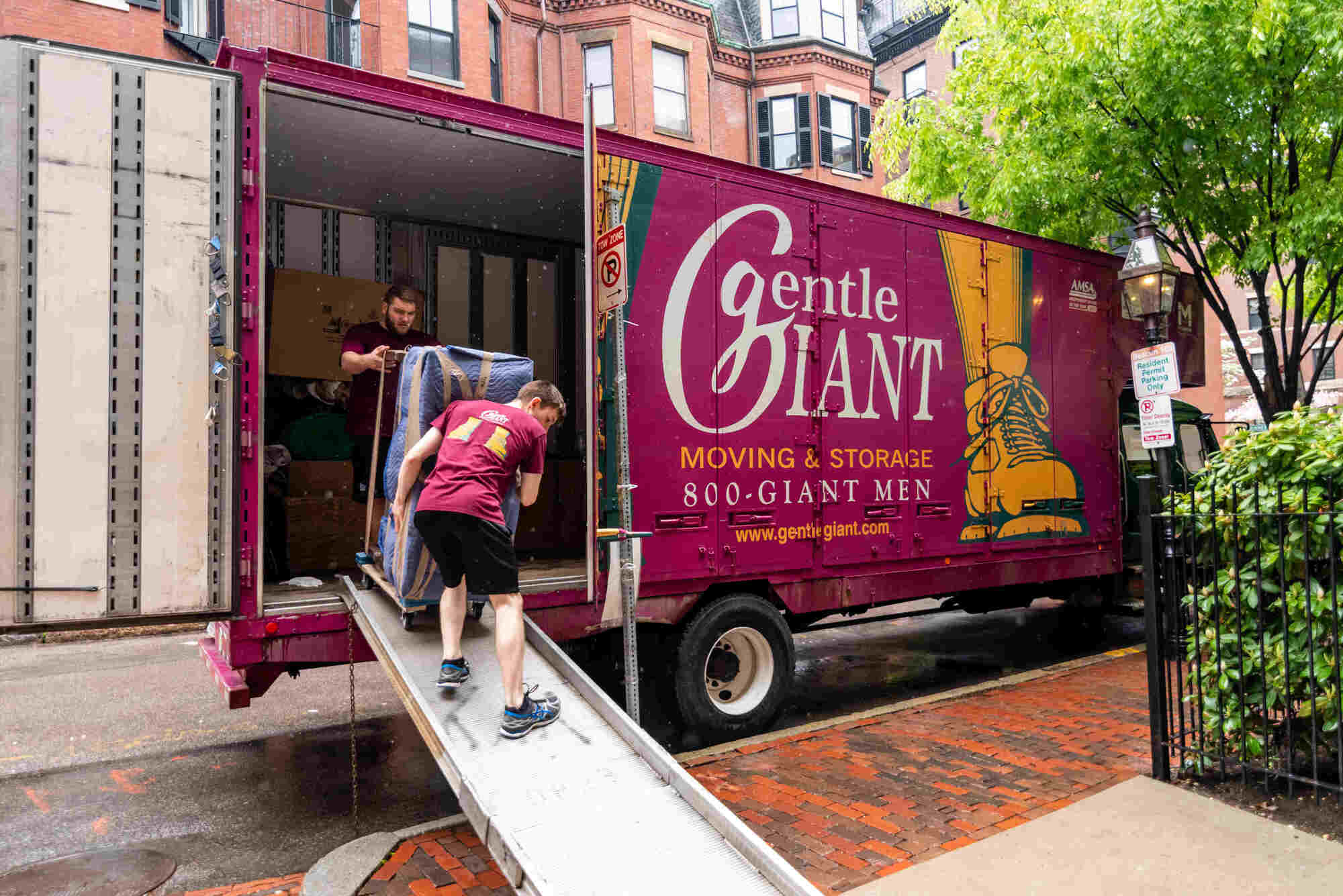
Not a numbers person? No problem! At Gentle Giant Moving, we understand that setting a moving budget is yet another task (and possibly the most dreaded) on your never-ending to-do list. That’s why our move experts share their insights on how to budget, how much to budget, and more. You won’t want to miss this one!
The Average Cost of a Local vs. Long-Distance Move
Average Cost of a Local Move
The first step in estimating the cost of your move is to determine the type of move you plan to make, e.g., is it a local or long-distance move?
If the distance between your current and new home is 60 miles or less, most moving companies identify it as a local move. A move is considered long-distance at 60-100+ miles to your destination. Once you have established the distance of your move, additional factors like storage, packing, and insurance must be considered. We’ll get to that a little later.
Typically, moving companies will charge an hourly rate for labor on local moves. Be prepared to pay between $25-60 per mover per hour. This fee can fluctuate due to specialty items (antiques, jacuzzi, etc.) and special circumstances (additional stops, broken elevators, etc.). While the hourly rate will remain the same for the duration of your move, the overall labor cost will vary depending on the size of your home and the number of belongings in it.
Average Cost of a Long-Distance Move
Estimating the cost of a long-distance move is more complicated. Pricing is based on complex factors, like shipment weight and mileage, along with the standard local moving costs, like labor. Some moving companies will charge a flat fee of $1,000 for long-distance moves, so expect your relocation to cost upwards of this.
However, it’s important to approach these averages with caution. The time of year, the size of the move, the distance traveled, and other unique circumstances can greatly impact the final cost. While these averages provide a general sense of what to expect, individual circumstances will be key in determining the actual cost. We recommend contacting at least three moving companies for the most accurate number.
Basic Moving Costs to Consider
Your moving costs will vary depending on whether you hire professional movers or take the DIY route.
Moving with Professionals
Packing Services: Hiring professionals to pack your belongings securely can cost between $200 to $500 or more, depending on the extent of the packing required.
Loading and Unloading: Movers may charge around $100 to $200 per hour for loading and unloading services.
Transportation: The cost of moving trucks or services can vary, with rental trucks generally ranging from $50 to $200 per day and moving companies charging based on the distance and weight of your belongings.
Insurance: Basic valuation coverage is often included, but for additional protection, full-value replacement insurance could add around 1% of the declared value of your possessions.
Additional Services: If you have specialty items like pianos, pool tables, or fragile antiques, you might need to pay extra for their safe transport.
DIY Moving
Truck Rental: Rental costs for a moving truck can range from $50 to $200 per day, depending on the truck’s size.
Gas and Mileage: Fuel costs can vary significantly depending on the distance of your move.
Packing Supplies: Boxes, packing tape, bubble wrap, and other supplies can add up to around $100 to $300 or more.
Lodging and Meals: If your move requires an overnight stay, you must budget for accommodations and meals.
Other Moving Expenses to Consider
Transportation: If you’re flying to your new destination, include airfare and transportation costs to and from the airport.
Lodging: Budget for temporary accommodations if there’s a gap between moving out and moving in.
Storage: If your new home isn’t ready, you might need to rent a storage unit, with costs varying based on size and location.
Utility Setup: Don’t forget to budget for connecting or transferring utilities, cable, internet, and other services.
Change of Address: Expenses related to changing your address, such as updating driver’s licenses and postal services.
Home Repairs and Cleaning: Preparing your old home for sale or ensuring your new home is move-in ready can entail additional costs.
Creating a Moving Budget
Estimate Expenses: Research and gather quotes from moving companies or truck rental services—factor in packing supplies, transportation, and additional costs like lodging and meals.
Set Priorities: Determine which services are essential and which ones you can handle yourself. Allocate funds accordingly.
Create a Spreadsheet: Organize your budget in a spreadsheet to keep track of estimated and actual expenses.
Add a Contingency Fund: Include a buffer for unexpected costs, usually around 10% of your total budget.
Research Tax Deductions: Depending on the circumstances, some moving expenses might be tax-deductible, so consult a tax professional.
Monitor and Adjust: Regularly update your budget as you gather more accurate cost information and adjust as needed.
Are you planning a local or long-distance move? Speak with a reputable moving company like Gentle Giant. We have some great resources to get you started. Check out our moving checklist for information on how to prepare and use our free move estimate tool to determine the cost of your move.

